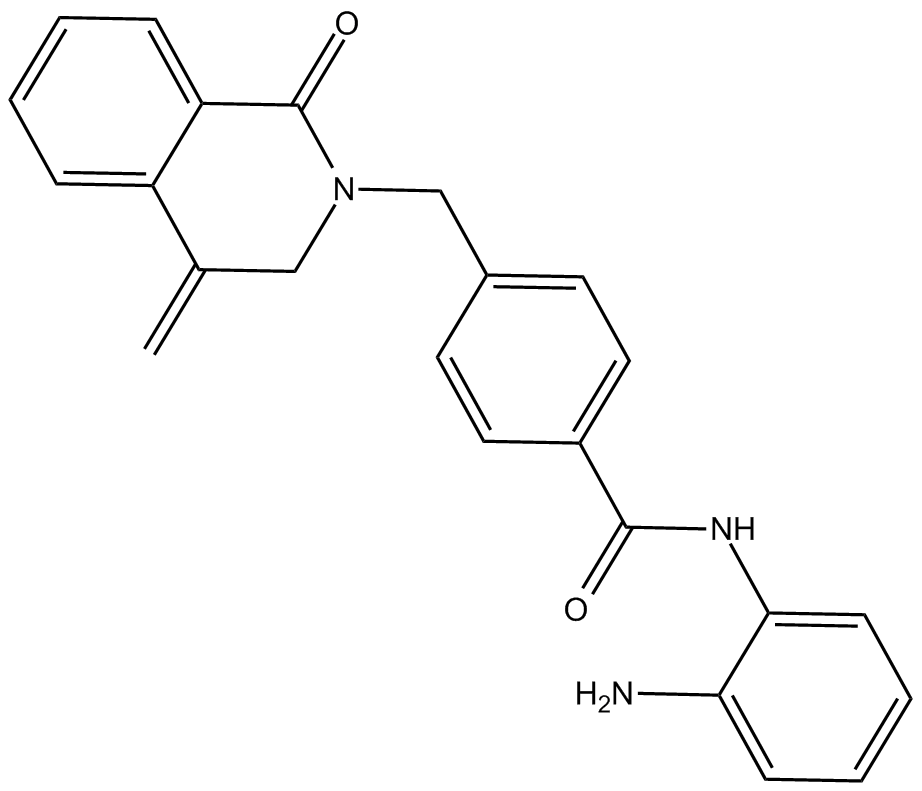MI-192 |
| Catalog No.GC11949 |
inhibitor of histone deacetylases (HDACs)
Products are for research use only. Not for human use. We do not sell to patients.

Cas No.: 1415340-63-4
Sample solution is provided at 25 µL, 10mM.
MI-192 is a histone deacetylases (HDACs) inhibitor that preferentially inhibits HDAC2 and HDAC3 with IC50 values of 30 nM and 16 nM, respectively [1].
Histone acetylation is the most commonly employed mechanism utilized by transcription factors to activate gene expression. Conversely, histone deacetylation is the most common mechanism used to inactivate genes. Histone deacetylase inhibitors (HDACIs) are in advanced clinical development as cancer therapeutic agents [1].
MI-192 is a novel benzamide-based compound that had marked selectivity for the class I enzymes, HDAC2 and HDAC3. In HeLa cell extracts, MI-192 inhibited HDAC activity with IC50 value of 1.5 μM. MI-192 selectively inhibited recombinant HDAC2 and HDAC3 with IC50 values of 30 nM and 16 nM, respectively over HDAC1, 4, 6, 7, and 8 (IC50s = 4.8, 5, >10, 4.1, and >10 μM, respectively). MI-192 showed the greatest growth inhibitory effect against the leukemic cell lines with an effective dose of 0.1-0.4 μM. MI-192 was cytotoxic and promoted apoptosis and differentiation in leukaemic cell lines [1]. In the human prostate cancer cell line PC3, MI-192 significantly increased tubulin acetylation and ablated the dynamic behaviour of microtubules in live cells [2].
References:
[1]. Boissinot, M.,Inman, M.,Hempshall, A., et al. Induction of differentiation and apoptosis in leukaemic cell lines by the novel benzamide family histone deacetylase 2 and 3 inhibitor MI-192. Leukemia Research 36, 1304-1310 (2012).
[2]. Bacon T, Seiler C, Wolny M, et al. Histone deacetylase 3 indirectly modulates tubulin acetylation. Biochem J. 2015 Dec 15;472(3):367-77.
Average Rating: 5 (Based on Reviews and 29 reference(s) in Google Scholar.)
GLPBIO products are for RESEARCH USE ONLY. Please make sure your review or question is research based.
Required fields are marked with *




















